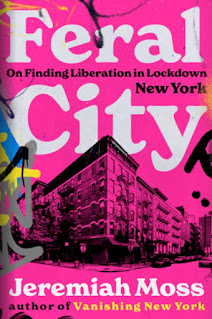VANISHING
Frankel's clothing shop has been in Brooklyn for a very long time. Tucked into the shadows of the Gowanus Expressway in Sunset Park, the shop's painted bricks announce: "An American Treasure Since 1890," "The One," "The Only," and "We're Still Here."
But Frankel's won't be here much longer. Third-generation owner Marty Frankel has decided it's time to pack up and move the shop to Jersey.

With its selection of steel-toed boots and Carhartt work clothes, Frankel's caters mostly to laborers. They've covered his doorway with union stickers.
"You know how the Jewish people have the mezuzah on the door and they kiss it? The union guys do it with a sticker," Marty says. "They walk out and kiss it." He demonstrates, kissing his fingers and then touching them to the door frame.

Before work clothes, Frankel's specialized in western wear. Cowboy boots and cowboy hats. Marty would put horse manure in the dressing rooms to give the place that country aroma. Before that it was Timberland boots and "ethnic clothes," snakeskin pants and Italian knit sweaters, bandannas in gang colors. He shows a photo of customers Method Man and Raekwon from the Wu-Tang Clan. Before that, going back to when Frankel's began, they outfitted the seamen coming in off the big ships at port. But they sold more than just clothing.
"In the 1950s," Marty says, "condoms were illegal in a lot of places. So we'd get cases of Trojans and take 'em down to the ships," to sell them in bulk to foreign sailors who'd smuggle them back to their home countries. "I'm responsible for a lot of people not being born. I like to say I sold
condoms to seamen." He smiles at the joke.

A warm and welcoming guy, Marty likes to joke around. He's got a roll of packing tape on the counter with the word SEX written on it. "That's my sex tape," he says. "Don't mind me. I got Tourette's."
Somehow he gets to talking about the designer Ralph Lauren, who changed his name from Lifshitz, or was it Lipshitz? "They used to say: If your Lipshitz, what does your asshole do? Don't mind me. I got Tourette's."

When Brooklyn's piers shut down and the seamen sailed away, the neighborhood changed. In the 1970s it got rough. Marty would go to work strapped with two guns and a bullet-proof vest. It was a daily thrill. "I miss it," he says, looking out the window to the street. "It was exciting to come in and see who got shot over the weekend. I saw a guy get shot on that corner, a body dumped over there, and another guy get his ear shot off right there. It was a tough place back then. If you weren't black and blue, it meant your father was in jail."
But Marty survived. He was part of the scene. He grew up in the neighborhood and came to work in the shop with his father. The place is full of antiques, including a bowler hat that belonged to Marty's grandfather, a shoe-fitting fluoroscope (for x-raying feet while emitting radiation), and a long wooden bench that goes back a century.
"My whole life was spent on that bench," Marty says. "I slept on it as a child. That was my crib. I don't know anything else. All I know is this store."

Marty owns the building and doesn't plan on selling it. But it's time to close.
"I'm 76 years old," he explains. "I'm tired. I fell asleep going home on the Pulaski Skyway. I'm lucky to be alive, but I get tired driving home to Jersey every night." And the parking around the store is terrible. "It's not easy down here. There's nowhere to park. They call this Sunset Park? They should just call it Sunset."
Besides, the majority of his customers have moved away from Brooklyn.
More and more, old-time locals come in and tell him their landlord has sold their building and they're getting evicted, moving to Pennsylvania or some other state. The neighborhood is changing again. A nearby Costco has taken a bite out of Frankel's -- "It hurts. Costco gets all the deals" -- and the newcomers to the neighborhood haven't helped.
"Hipsters. They're all white guys with Chinese girlfriends and rescue dogs," says Marty. "They try on twenty pairs of shoes, but they won't buy here because the store doesn't look nice. They like to take pictures of my barcodes, though, and then buy the shoes online."

Still, Frankel's is well loved by its regulars and the neighborhood people. A guy walks in and calls out, "Hey Marty, I gotta take a piss," and heads to the restroom. A woman comes in and chats about life, the school they both went to years ago. Customers come and go, buying boots and hats.
They all know Marty and enjoy his easy talk--and his sense of humor. Like his trick of leaving an old boot on the sidewalk as bait. Passersby pick it up and bring it in, saying, "You left a boot outside." He thanks them and then, after they go (hopefully after buying something), he tosses the boot back on the sidewalk.
"It's going to be hard to leave," Marty says, sitting down on that antique bench. "Mentally, it's hard. I'm like the watering hole here. People come by and ask
What happened to this guy? and
Have you heard from that guy? I've got three generations of people shopping at this store. Now that they know I'm closing, they write me emails. They say,
How can you do this to us? Do it to
them? I have trouble sleeping at night, thinking about the move. But it's time. A hundred and twenty-seven years? I figure that's long enough."
By the end of November, Frankel's will be gone.

























































